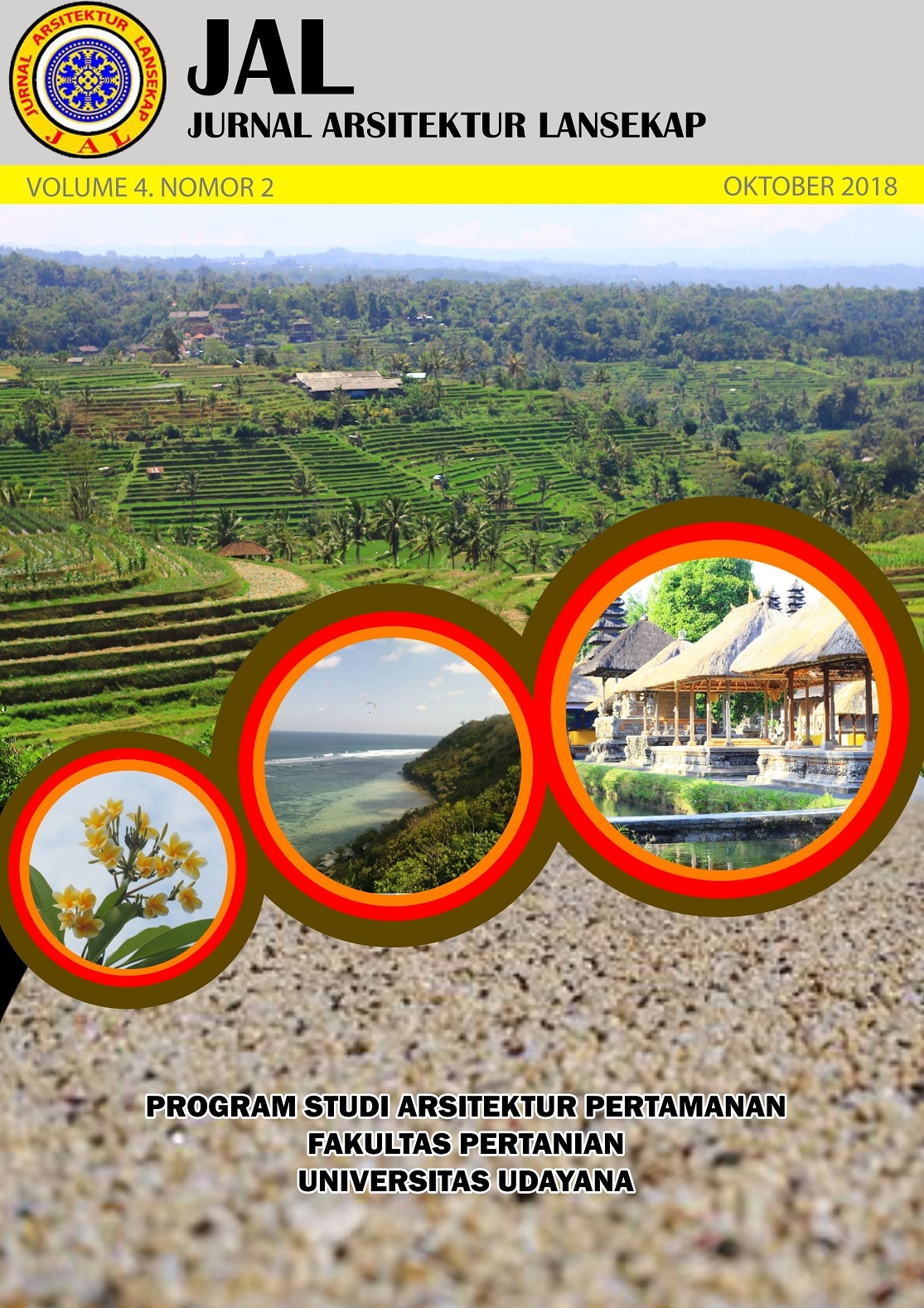Rencana lansekap wisata berbasis aspek 4-A di kawasan pesisir Batu Bolong, Desa Canggu, Kabupaten Badung, Provinsi Bali
Abstract
Landscape tourism plan based on aspect of 4-A at Batu Bolong coastal area, Canggu Village, Badung Regency, Bali Provice. Badung regency is a place that has spacious coastal landscape and much developed for tourist area. However, its potential needs to be optimized. One of attractive coastal area in Badung is Batu Bolong which is located in Canggu village, North Kuta district. Tourism is a commodity product which is created to respond to the society needs by considering four basic aspects that have to be met as a totality product. This research aims to explore both potencies and constraints within the Batu Bolong coastal area towards tourism development so it would be able to determine development planning concept based on aspect of 4-A (attractions, accessability, amenities, ancilliary) offering concept. The research method used consists of several stages i.e. inventory, analysis, synthesis and concept. The results show that based on the inventory and analysis of biophysical, socio-cultural and 4-A aspects of tourism offer on the landscape development were produce a spatial concept, concept circulation, greenery concept and finally resulted a block plan of 4-A aspect-based landscape management plan. This concept will be support the activities of the marine and religious tourism plan in Batu Bolong.
Downloads
An author who publishes in the Jurnal Arsitektur Lansekap (JAL) agrees to the following terms:
- Author retains the copyright and grants the journal the right of first publication of the work simultaneously licensed under the Creative Commons Attribution-ShareAlike 4.0 License that allows others to share the work with an acknowledgement of the work's authorship and initial publication in this journal
- Author is able to enter into separate, additional contractual arrangements for the non-exclusive distribution of the journal's published version of the work (e.g., post it to an institutional repository or publish it in a book) with the acknowledgement of its initial publication in this journal.
- Author is permitted and encouraged to post his/her work online (e.g., in institutional repositories or on their website) prior to and during the submission process, as it can lead to productive exchanges, as well as earlier and greater citation of the published work (See The Effect of Open Access).
Read more about the Creative Commons Attribution-ShareAlike 4.0 Licence here: https://creativecommons.org/licenses/by-sa/4.0/.







